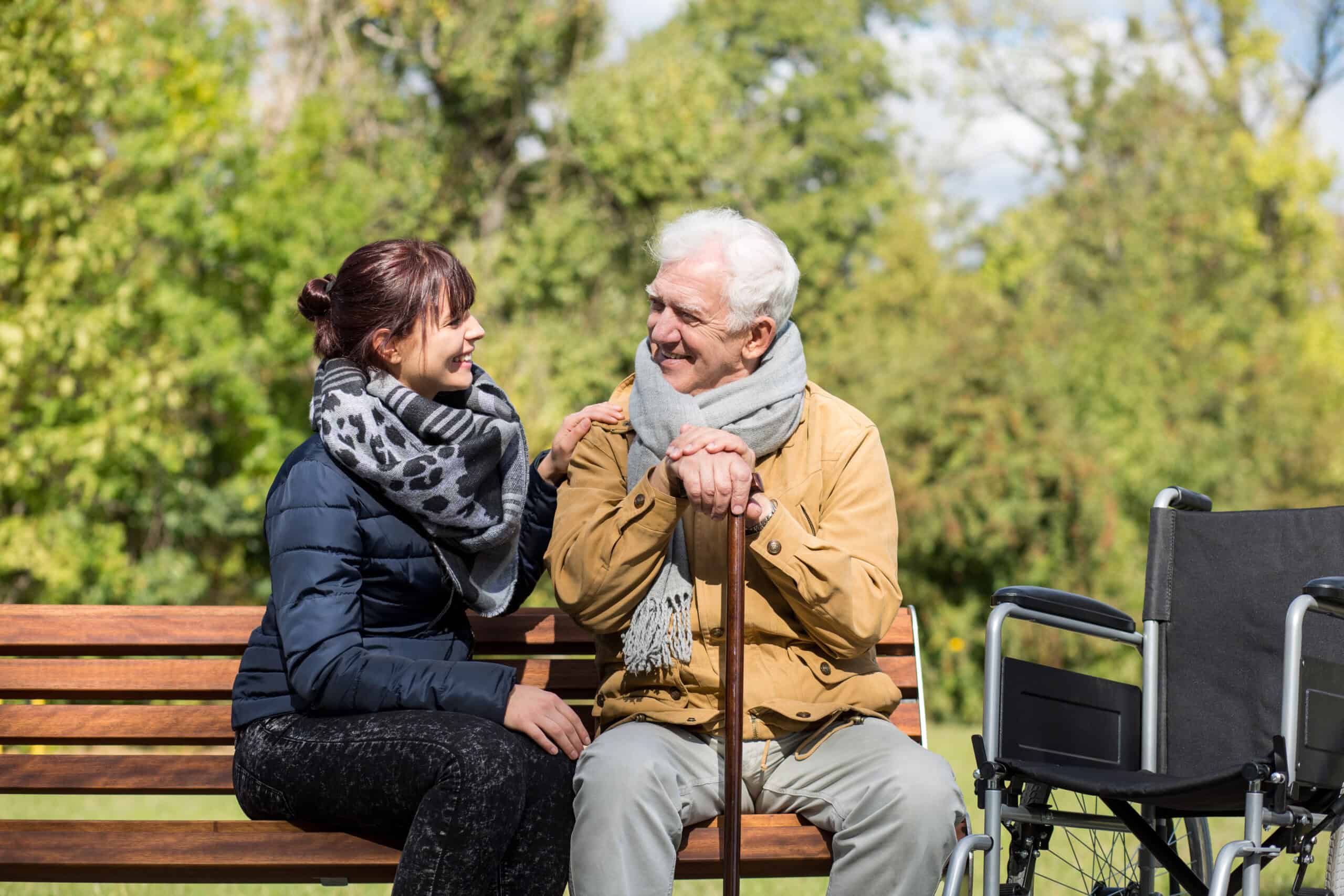
Society does not often feel comfortable talking about grief. With all the advancements in technology, we have learned many new ways to increase well-being and lengthen our lives, but we have yet to make advancements in having difficult conversations about end-of-life. It is left up to caregivers to deal with the burden, which leaves them feeling isolated or misunderstood. That is why it is important to learn how to ask for help and support from those around you.
Before we begin discussing ways to ask for help and support, we first want to acknowledge that this process can be difficult for anyone, especially considering how emotionally-involved a caregiver’s role can be. On top of this, many people do not know how to discuss grief-related topics. This can mean that even though we have people who care a lot about us, they may not know how to help in the best way. This can be invalidating and frustrating. We encourage you to recognize that asking for and receiving help may be a very vulnerable process. We hope you can be patient with yourself and those around you.
Burnout in Caregivers
Many people tend to undermine the impact burnout can have on us as humans. However, you can find symptoms of caregiver burnout on WebMD (it’s a real thing!)
Symptoms of burnout in caregivers or even just signs we need to take a break can look like this:
- Withdrawal from friends and family
- Loss of interest in activities you used to enjoy
- Feeling sad, cranky, hopeless, helpless
- Changes in sleep or appetite
- Getting sick more often
- Emotional and physical exhaustion
- Feelings of wanting to harm yourself or the person for whom you are caring
Feeling burnt out can be caused by many different things:
- You may have a hard time separating the various roles in your life – For example, this may look like spending time outside of work thinking about your job. We know that work-life balance probably isn’t going to be healthy in the long run…however it can be tricky to identify this as caregivers. Unfortunately, this can make stepping out of a caregiver’s role difficult.
- It may feel like you are making less of an impact than you want to – For people with dementia or Alzheimer’s, it may not be possible for them to appear vibrantly happy every time you do something kind for them. Even though your companionship and emotional support make a huge difference, it may be hard for your loved ones to express that, and in return, that can be difficult as caregivers.
- You may feel a lack of control – It is common to experience moments as caregivers where you did not feel like you had much control over the situation. Whether that be financial issues, finding resources, or even navigating what’s best for your loved one’s well-being. You must think on your feet often and have to mind-read to help your loved one. That can feel defeating and confusing.
- You may be taking on too much and feel like there are too many demands – You are doing a lot of work to care for your loved ones! We encourage you to reflect on and validate all that you do for them.
Next Steps for Caregivers
Find someone to talk to – Finding friends, coworkers, neighbors, etc., to lean on for emotional support allows you to release some negative thoughts or feelings you may be carrying. Accepting these negative feelings as they come is essential. Just because you are frustrated or angry does not mean you are a bad caregiver.
Take a break if you can – If you have siblings or children that could help in visiting at times, it may be a good idea to ask them for more support. There is no shame in admitting you are carrying too much. Another option could be respite care if help is limited. You should bring that option to your care team if it is of interest. They can provide additional ideas and support in this matter.
Set aside time for yourself – whether this is just a moment to take some intentional deep breaths and recenter yourself or an hour to yourself or even a week off, please make time to come back to yourself. Time to exercise or eat a healthy meal can make a HUGE DIFFERENCE. Nourishing and moving your body help refresh and ground yourself when life is full of scary unknowns.
Talk to a professional – Therapists, social workers, and spiritual leaders are great options to reach out to. They are well-trained and educated to support caregivers.
With all of these in mind, one of the most impactful things you can do is grieve. You are most likely experiencing anticipatory grief while being immersed in caring for your loved one. Many people overlook the emotions you may be experiencing as caregivers and focus only on caring for a loved one. But giving yourself the space to feel what you are feeling without judging yourself or the situation can allow you to begin healing.






